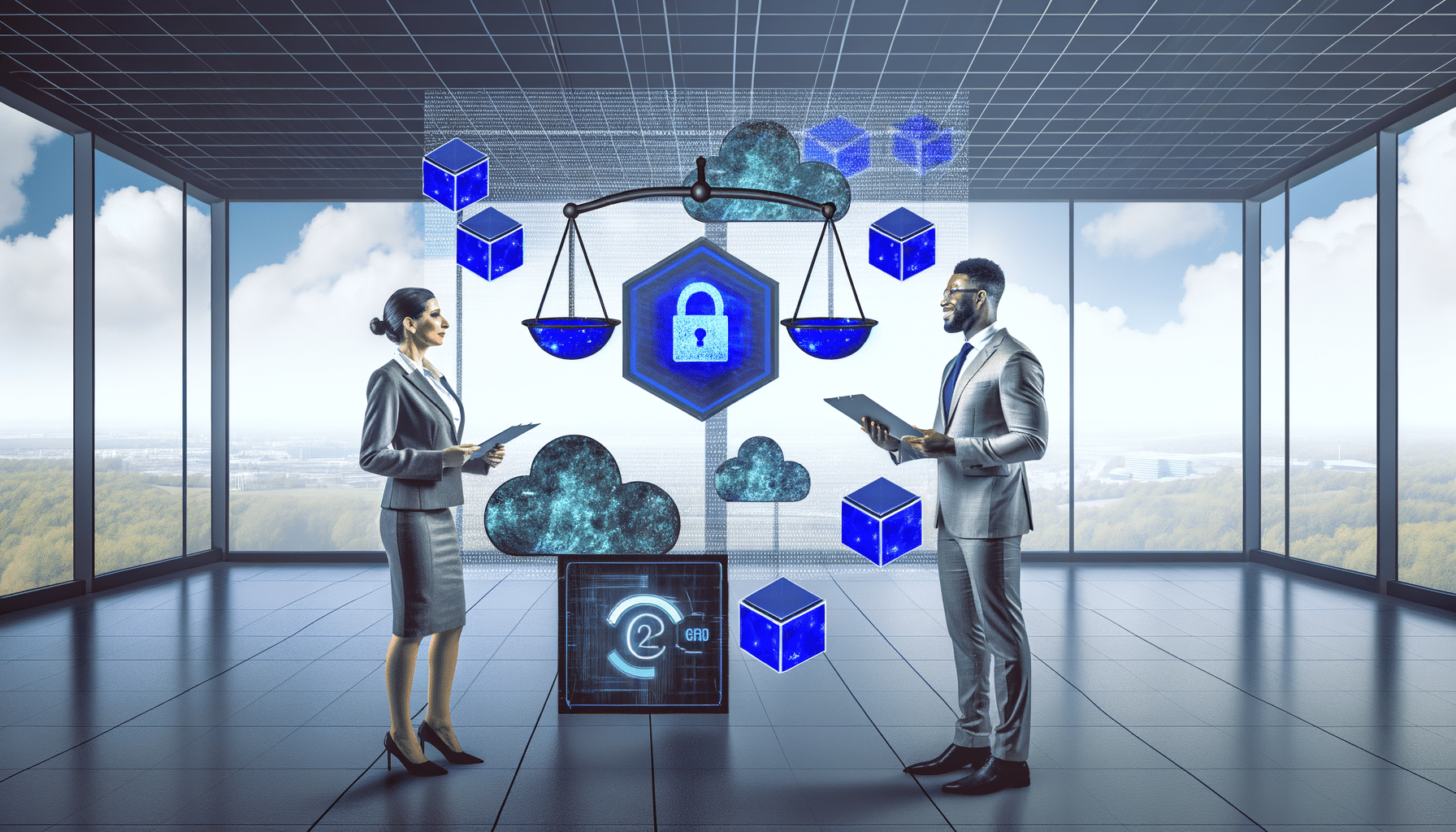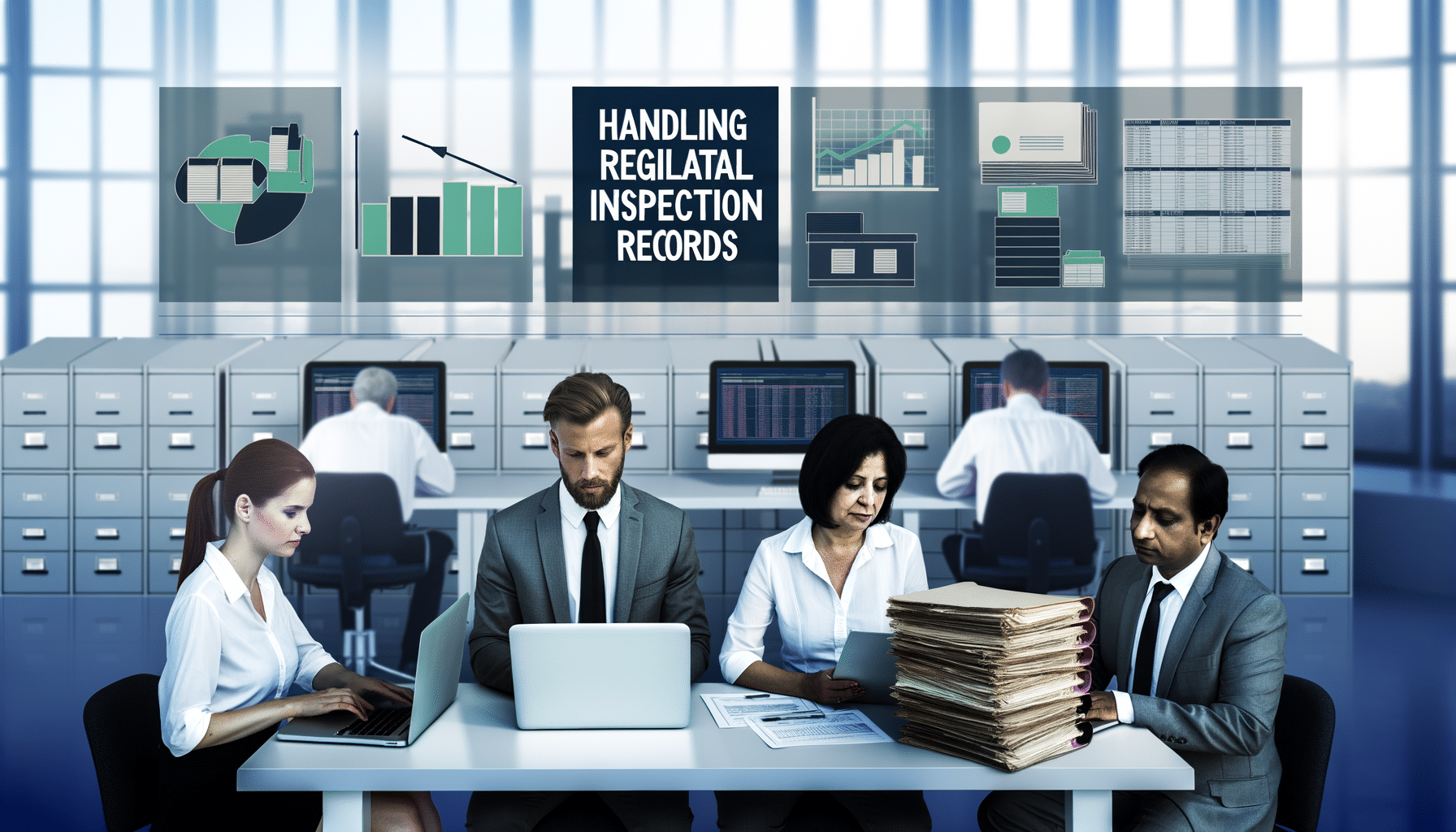- Blockchain Compliance
- January 27, 2023
Blockchain and GDPR: Balancing Privacy with Transparency

In my journey with RecordsKeeper.AI, I’ve navigated numerous challenges in record management, one of the most pressing being the balance between privacy and transparency. Blockchain, a technology integral to our platform, promises a resolution to striking this balance, particularly in light of the General Data Protection Regulation (GDPR). Implementing blockchain in compliance solutions offers a robust way to meet GDPR requirements while maintaining transparency—a dual necessity in today’s data-driven world.
Understanding the Intersection of Blockchain and GDPR
Blockchain is celebrated for its transparency and security features. However, GDPR is anchored on protecting personal data, which necessitates privacy. To comprehend how these two can coexist, it’s crucial to understand their core dynamics. GDPR aims to protect EU citizens’ data privacy and gives individuals control over their personal information. Blockchain, meanwhile, is a decentralized ledger where every transaction or data record is unalterably logged, creating transparency.
The inherent transparency of blockchain might initially appear at odds with privacy mandates, but this technology’s architecture can be tuned to meet GDPR’s stringent requirements. This is where innovation plays a transformative role in record management.
Blockchain’s Role in GDPR Compliance
Several aspects of blockchain align well with the GDPR framework:
- Immutable Records: Blockchain’s unchangeable ledger assures data integrity and can provide indisputable audit trails, which is essential for demonstrating compliance with GDPR.
- Decentralized Control: Decentralized ledgers reduce the risk of centralized data manipulation or breaches, enhancing data security—a fundamental requirement of GDPR.
- Enhanced Data Security: Sophisticated cryptographic methods used in blockchain secure personal data beyond conventional means, aligning with GDPR’s requirement to protect data against unauthorized access.
- Smart Contracts: These self-executing contracts with the agreement directly written into code can automate GDPR compliance processes, such as obtaining consent for data processing and ensuring transparent data usage.
Though blockchain offers these advantages, certain challenges still persist, particularly around the GDPR’s “right to be forgotten.” Blockchain’s permanent record could potentially conflict with this right, thus innovating solutions within blockchain design is crucial.
Solutions to Align Blockchain with GDPR
To harness blockchain’s benefits while adhering to GDPR, a few strategies can be instrumental:
- Permissioned Blockchains: Unlike public blockchains, permissioned blockchains can control who has access to sensitive data, thereby enhancing privacy.
- Data Minimization: By only storing essential data, blockchain usage can align with GDPR’s principle of data minimization.
- Hashing Techniques: Instead of storing data on the blockchain, utilizing unique hashes can protect individuals’ privacy. The data itself remains off-chain and is accessed using the hash reference.
- Zero-Knowledge Proofs: This cryptographic method allows one party to prove to another that a statement is true without revealing any information beyond the validity of the statement itself, safeguarding privacy.
By employing such techniques, businesses can effectively use blockchain technology to their advantage without compromising GDPR compliance or data privacy.
Embracing the Future with Blockchain
At RecordsKeeper.AI, I’ve seen firsthand how pivotal blockchain can be in revolutionizing record management while meeting privacy compliance standards. Through continuous innovation, we aim to refine our systems to address the evolving regulatory landscape. Blockchain is not merely a solution but a strategic advantage in achieving the fine balance between privacy and transparency.
Those working in legal, finance, and compliance roles need a strong grasp of these solutions to prepare their organizations for a future where transparency does not come at the expense of privacy. As the data privacy narrative evolves with technology, understanding these dynamics becomes imperative.
Interested in exploring how blockchain can transform your record management processes while staying compliant with GDPR? I invite you to delve into the world of RecordsKeeper.AI, where innovation meets compliance, and stay tuned for more insights into the tech innovations shaping tomorrow.
Toshendra Sharma is the visionary founder and CEO of RecordsKeeper.AI, spearheading the fusion of AI and blockchain to redefine enterprise record management. With a groundbreaking approach to solving complex business challenges, Toshendra combines deep expertise in blockchain and artificial intelligence with an acute understanding of enterprise compliance and security needs.
Related Posts


Handling Regulatory Inspection Records
Managing documentation for regulatory compliance.
- January 3, 2025
Archives
- January 2025
- December 2024
- November 2024
- October 2024
- September 2024
- August 2024
- July 2024
- June 2024
- May 2024
- April 2024
- March 2024
- February 2024
- January 2024
- December 2023
- November 2023
- October 2023
- September 2023
- August 2023
- July 2023
- June 2023
- May 2023
- April 2023
- March 2023
- February 2023
- January 2023
- December 2022
- November 2022
- October 2022
- September 2022
Want to get more content like this?
Signup to directly get this type of content to your inbox!!
Latest Post
Document Control for Equipment Maintenance
- January 20, 2025
Managing Records for Multiple Clients
- January 19, 2025
Handling Conference Documentation
- January 18, 2025
Setting Up Department Record Reviews
- January 17, 2025





